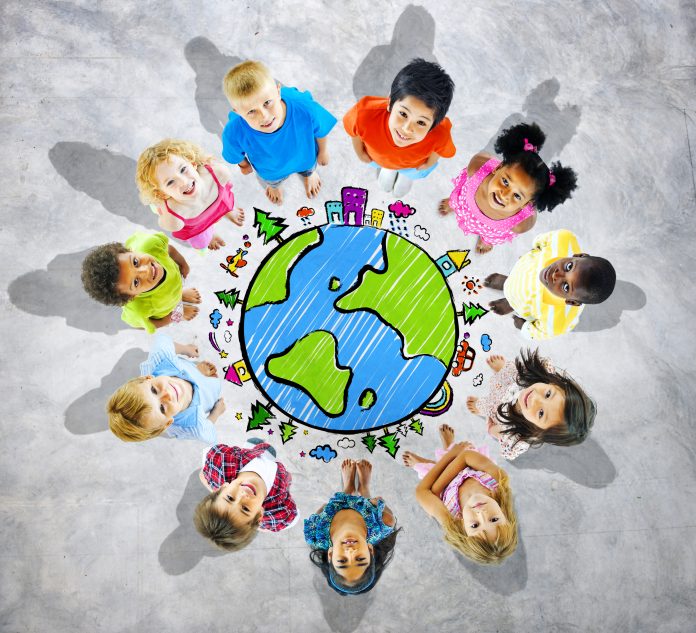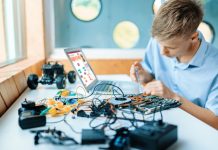Dr Anantha Duraiappah and Dr Nandini Chatterjee Singh from UNESCO, Mahatma Gandhi Institute of Education for Peace and Sustainable Development, share their views on the importance of global citizenship for human flourishing
In 2015, the United Nations Sustainable Development Goals (SDGs)1 – a universal call to end poverty, protect the planet and ensure that all people enjoy peace and prosperity – were adopted by 193 member states of the United Nations. Of the 17 SDGs, SDG 4, target 7, is focused not just on providing education, that is ‘Quality, Inclusive and Equitable Education’ – but also seeks to build peaceful and sustainable societies.
To achieve SDG 4.7, education needs not just to be redesigned but its very purpose needs to be reconsidered. Why should education be revisited? The world is going through a demographic overhaul. Emigration and immigration patterns are creating societal compositions that are unprecedentedly heterogenous – composed of diverse races, classes and cultures. At the same time, a steady deterioration in the Global Peace Index since 2008 (GPI, 2017), a steady increase in internal conflicts 2016, continued decline in empathy (Konrath et al, 2010) and increased mental stress and depression in children (WHO report, 2017) have highlighted the failures and inadequacies of the current education system.
Education needs to be repurposed and redesigned to build not just human capital for economic growth but to create global citizens for human flourishing. We describe global citizens as lifelong learners who possess the critical consciousness to drive ‘active citizenship’, to recognise the inherent interconnectedness and dignity of all life and instil the values of acceptance, equality, respect for diversity, empathy and compassion.
To redesign education with this new purpose, we turn to recent advances in the neuroscience science of learning. Recent findings from brain research have demystified the learning process, facilitating new understandings of how learning happens and can be shaped. The human brain has emerged as a remarkable organ which has specialised tissue for both intellectual and emotional learning. The outermost layer of the brain in humans is the neocortex which is involved in building the intellect and includes processes like decision making, sensory perception, generation of motor commands, spatial reasoning, conscious thought and language. Older, inner structures of the human brain also called the limbic cortex, process emotion, goal setting, motivation and self-control (Gazzaniga, 2008). The neo-ortex is densely connected to the emotional cortex and, thus, all learning is hugely influenced by emotion. Most importantly, we now know that the brain is malleable and can be trained because of a process called neuroplasticity. Neuroplasticity is defined as the ability of the brain to form and reorganize connections, especially in response to learning (Draganski et al, 2004).
Thus, to build global citizens, education curricula needs to build not only intellectual skills of critical thinking, rational and logical decision making but also includes Social and Emotional Learning (SEL) through which individuals recognise and regulate emotions, identify positive purpose, demonstrate empathy for others, take compassionate action and promote human well- being. Research now shows that social and emotional learning can be taught in the classroom, just like literacy and numeracy and that explicit inclusion of SEL fosters happier motivated students who exhibit pro-social behaviour. Prosocial behaviour is voluntary social behaviour that represents a broad category of actions that are generally beneficial to other people and to the ongoing political system (Piliavin et al. 1981). Thus, prosocial behaviour promotes human flourishing and has been shown to be altruistic and motivational and recent reports have indicated that specific cultivation of prosocial behaviour may be a necessity to achieve the SDGs (Asah and Chatterjee Singh, 2019).
We argue for a revolution in education – one that is restructured to promote global citizenship rather than only cater to the narrow political or economic agenda of countries. The pedagogical processes of education need to instil in learners the inherent interconnectedness and dignity of all life and create values of acceptance, equality, respect for diversity, empathy and compassion in us. Education-based on this approach can not only nurture the potential of the present generation but also future generations to generate peaceable and sustainable future societies consonant with a far-reaching vision of SDG 4.











